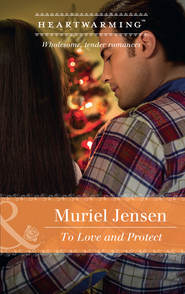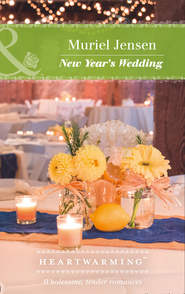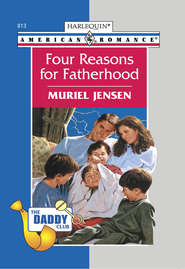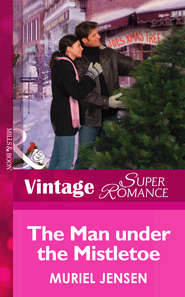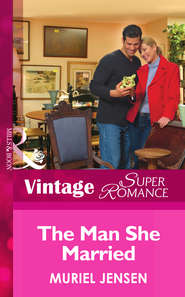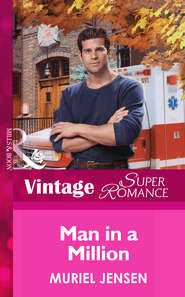По всем вопросам обращайтесь на: info@litportal.ru
(©) 2003-2024.
✖
Milky Way
Настройки чтения
Размер шрифта
Высота строк
Поля
Pleased to be able to grant a modestly priced request, Britt turned toward the commercial district, then pulled up in front of the newly built concrete-block building that housed the Y.
David leaned over the seat to kiss her on the cheek, then climbed past Renee and pushed the door open.
“I’ll pick you up in an hour,” Britt reminded him. “Wait right inside for me.”
David waved assent, then ran into the building.
A block farther Britt stopped again, this time in front of a pink Victorian trimmed in purple with a wooden sign marked Teddy Bear Tap and Ballet.
Renee leaned over to peck her mother’s cheek and said, when Britt opened her mouth, “You’ll pick me up in an hour and wait right inside the door.” She smiled impishly. “Right?”
Britt patted her curls and held her face against her own for an extra moment. The most cheerful of her children, Renee had unknowingly saved her sanity more than once during the past year. “Right, baby. Have fun.”
Britt wondered how many errands she could fit into the quiet hour afforded her. She had to stop by Brick’s to see if he could do anything with Matt’s bike, but that would still leave her time to check at the bank about her loan application. She decided against that instantly. She didn’t have the heart to face more rejection this afternoon.
She would visit Judson Ingalls and see if he’d completed the nutritional evaluation of her cheesecake sample.
A little stir of excitement distracted Britt momentarily from her worries. Her cheesecake was wonderful; everyone said so. It sold out regularly at the lodge, and Marge Peterson claimed that customers arrived early or else had to fight for the dozen cheesecake Danishes sold every morning at the diner.
As Britt drove to Ingalls Farm and Machinery at the edge of town, she frowned at the road, thinking that there had to be something big she could do with it. At the moment she was simply toying with the idea of wider distribution. But that meant more time baking and less time running the farm. She simply couldn’t spare the hours.
Unless the nutritional breakdown was so outstandingly low fat, low calorie and superbly nourishing that she had no choice but to market aggressively. Britt laughed as she pulled into the F and M parking lot. At least her sense of humor was still alive.
* * *
SHE FOUND JUDSON in his office in a rear corner of the building. He was in shirtsleeves, his tie pulled away from the open collar of his shirt, glasses far down on his nose as he studied a piece of correspondence. He looked up at Britt over the glasses as she peered around the door.
“Britt! Come in,” he said, standing and coming around the desk to draw her into the office. “I was going to call you in the morning. I put a report together for you today.”
“Wonderful.” She smiled, touched by his gallantry as he retained her hand until she was settled in one of the two chairs that faced his desk. She could haul fence posts by herself and he knew it, but he considered it important to see her properly seated.
Descended from one of the Tyler founding fathers, Judson was a generous, well-respected citizen who worked hard for his community, but whose favorite place was the laboratory off his office where he’d tinkered and dreamed most of his life.
Tall, gray-haired and gravelly voiced, he was possessed of a touching kindness and caring that reminded Britt sharply of her father. Judson had worked with her dad on several service projects. Despite the differences in their social standing, they’d become friends. When her parents were killed in an auto accident right after Matt was born, Judson had taken care of all the expenses the insurance hadn’t covered. When Jimmy died, he’d paid for the funeral. Those were kindnesses she would never forget.
“How are you, first of all?” she asked, sincerely interested. There was always a hint of tragedy and sadness behind the kindness in his eyes. Now, since the traumatic discovery of his ex-wife’s body during the renovation of Timberlake Lodge, once Judson’s home, he’d seemed to retreat even more deeply within himself.
Tyler was abuzz with speculation. Britt ignored it, figuring the truth would come out one day, and that it probably wouldn’t be the lurid tale gossip had embroidered.
Though she didn’t believe for a minute Judson had been in any way involved with his wife’s death, recent developments in the case were bizarre and inexplicable. She just wished the whole mess would go away. She wanted to see that haunted look gone from Judson’s eyes, wanted to know he was happy.
“Not bad, not bad,” he said in answer to her question, his smile broadening quickly, “for a man my age.” Just as suddenly he sobered and studied her closely.
“You’re looking a little peaked,” he said. “I saw Brick at the lodge.” A cloud passed quickly over his features, then was gone. “He says you’re working much too hard.”
She shrugged a shoulder. “It’s that or lose the farm. I just can’t do that to all the Bauers who worked so hard to pass it on to me.” She smiled at Judson. “You know how that is.”
He nodded, fixing her with an expression of paternal affection. “The past keeps its hold on us, all right. I just hate to see you work yourself sick against impossible odds. The world’s different now, Britt. Your ancestors fought Indians and the elements and the market, but they never had to deal with monster dairy conglomerates who could outproduce and undercut you a hundred times over.”
She leaned forward in her chair. “So, is my cheesecake recipe going to make me a contemporary food industry marvel and help me save the farm?”
He pulled a thin folder out of a lineup of books and cleared a place for it, opening it on the desktop. “I’ve got good news and bad news,” he said.
She leaned an elbow on the armrest and grinned. “Just tell me the good news. Bad news always finds me anyway.”
He folded his arms on the report. “First, I think you do have something with potential here. It’s delicious. We’re all agreed on that.” He consulted the report, running his index finger down a line of figures. “Using low-fat milk and cheese brings it in at a caloric and nutritional level that should thrill the gourmet dieter.”
Britt felt her adrenaline begin to flow. She knew it! She resisted the impulse to leap across the desk and hug Judson, and instead asked with what she hoped was professional cool, “Then you don’t think I’d be crazy to develop more yogurt products and widen my market base?”
He considered a moment, removed his glasses and nodded with obvious reluctance. “Yes, I think it would be crazy.”
Britt’s adrenaline flow reversed, blocking a gasp in her throat. “I...don’t understand.”
Judson leaned back in his chair. “Britt, the market’s already clogged with low-calorie, high-nutrition products. All the big dairies are jumping on the bandwagon. You might do all right, but not well enough to outsell, say, Land o’ Honey Foods. And there’s the extra time and effort this will cost you just to put yourself in a position to try to compete.”
“Those products aren’t really all that healthy,” she argued. “The producers play games with numbers and trick the consumer with labeling. They call a product 95% fat free, but when you check the breakdown, with 150 calories the product has 9 grams of fat. At 9 calories a gram, that’s 81 calories of fat—more than half the 150. How can that be called 95% fat free?”
He smiled at her vehemence. “You can make numbers mean anything you want. They’re talking about a percentage of the product’s weight, not of its calories. A product like milk, for instance, has a large amount of water and minerals that add to its weight, but not its calorie count.”
“My product really is better for people. I’ve used low-fat everything and a sugar replacement.”
Judson sighed. “You know how much it’d cost you in advertising to let the consumer know that?”
Britt got to her feet and paced the office, trying to organize her thoughts. “Judson, I’ve researched the market. Fortune magazine says the consumer’s self-indulgent phase is winding down. The new shopper is eating his cancer-fighting cruciferous vegetables, having his cholesterol tested and striving to prolong his life. He isn’t buying gourmet ice cream anymore.”
Judson shifted in his chair and consulted the report again. “I’m not denying there’s a market for it. I’m just trying to tell you that scores of food manufacturers have gotten there before you.”
She folded her arms. “Is their cheesecake as good as mine?”
He chuckled. “I seriously doubt it, but I can’t say with any authority. Shall I send someone to the grocery store so we can conduct a taste test?”
She frowned good-naturedly. “Don’t laugh at me. I’ve had a rough day and I’ve got to do something to get out of this chasm of debt.”
“Britt, you have an excellent product here,” he said. “But that freezer aisle in the store represents a cutthroat market. Your cheesecake is scrumptious, but I don’t think you have the capital or the...the distinction to be noticed.”
She continued to pace. “Distinction?”
“You know, something that makes you unique, that screams out at the buyer. A gimmick.”
“Gimmick,” she repeated thoughtfully, falling back into her chair. “Why should something delicious have to have a gimmick?”
He smiled sympathetically. “The world turns on gimmicks. For a little guy like yourself, the gimmick would have to be big to get you noticed. But I think if you could find it, you’d be successful, because your product is superior.”
She looked at him suspiciously. “In your personal or professional opinion?”
“Both. Because I don’t have to conduct a lab analysis to know what you’re made of, Britt. If anyone can do the impossible, it’s you.”
Britt couldn’t help herself. She was encouraged. And it was so long since she’d felt a spark of enthusiasm for anything but her children that she let herself enjoy the sensation. She would remember all the negative aspects Judson had pointed out later. Right now she’d just hold on to the fact that he thought her cheesecake was delicious, and that he had faith in her.






